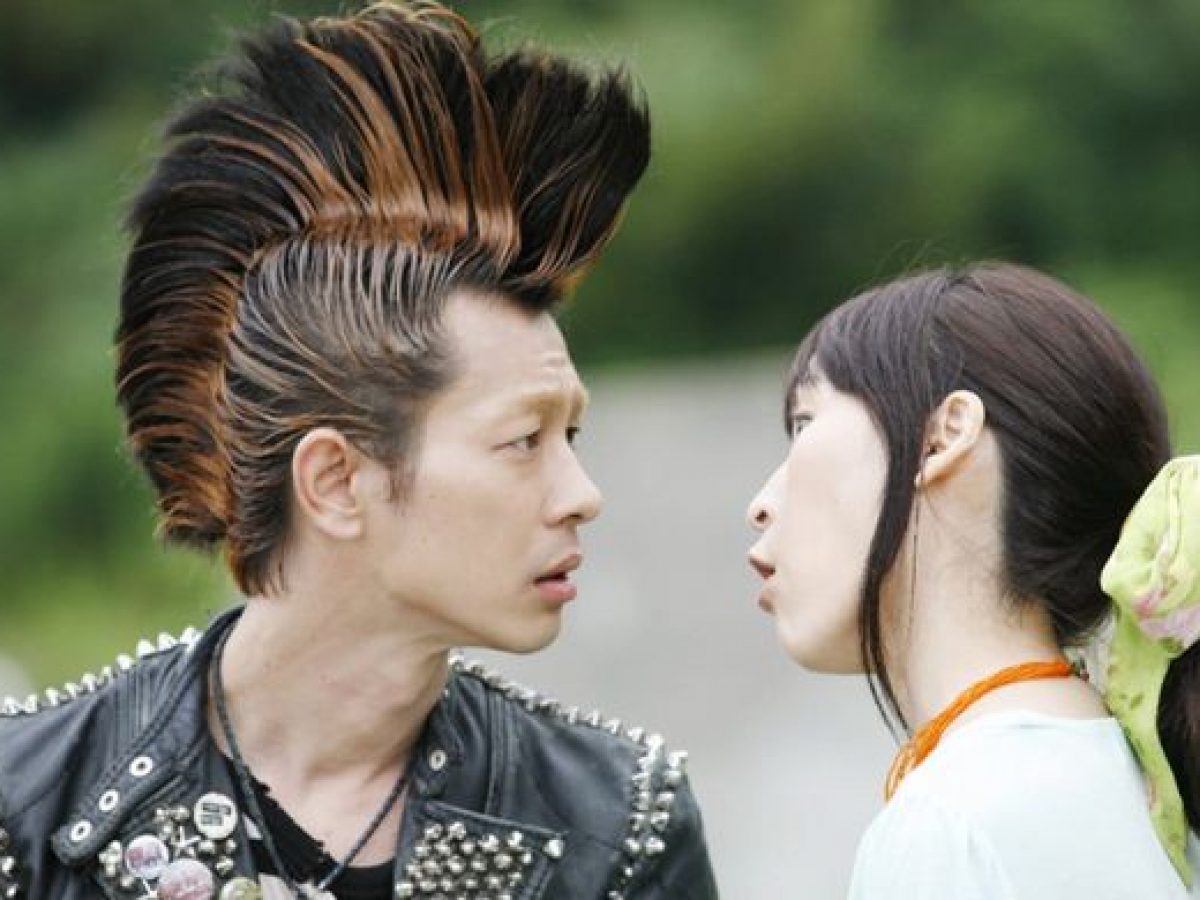By Chlotrudis Independent Film Society
Rating: 4 cats
Director: Satoshi Miki
Starring: Keiko Matsuzaka | Kumiko Aso | Morio Kazama | Ryo Kase

Original language title: Insutanto Numa
Country: japan
Year: 2009
Running time: 120
IMDB: http://www.imdb.com/title/tt1414827/
Jason says: “I watch/review a fairly broad range of films, and when people ask, I generally say that I approach all of them the same way, and try to treat them the same regardless of origin or genre or style. Most well-rounded film fans say this, and we generally mean it. You still have to wonder if there are little prejudices in there, though. For instance, I found INSTANT SWMP an enjoyable, mostly charming little movie. I have to admit, though – if you took the same script, translated it into English, and shot it in America (or England, or Canada, or Ireland…), my reaction might be less warm and fuzzy and more “being peculiar doesn’t make you interesting”.
“Meet Haname Jinchoge (Kumiko Aso), and occasionally eccentric but focused editor at a Japanese women’s magazine which is seeing its circulation numbers fall. She’s getting the usual static from her mother Midori (Keiko Matsuzaka) about still being single, but she’s about to have other problems – like mom falling into a coma, and finding out that her father may not be who she thought. The most likely suspect appears to be Noburo Jinchoge (Morio Kazama), aka ‘Mr. Light Bulb,’ a drifter running a junk shop. Haname won’t broach the subject directly, but does wind up hanging out there a lot, where she meets young, spike-haired electrician Gas (Ryo Kase), and Iiyama Wakoko (Shoko Aida), a middle-aged bride-to-be who thinks that only a fortune-telling machine she saw in her youth can resolve her nagging doubts.
“Is Haname quirky? Oh, yes. She has the sort of aggregation of odd habits, unlikely personal history which spawns same, and baby-girl-voice narration describing them, that tends to make me scream when the character is played by, say, Audrey Tautou. There are mitigating factors other than my being more tolerant of this sort of thing when it comes from Japan than the west, though. For one, the film doesn’t paint her as a pure and innocent free spirit whom the audience must love. She can be snippy, and snorts at others’ belief in spirits and superstitions. This is sort of contradictory at times, but Kumiko Aso mostly makes it work, especially in the beginning of the movie when we can see the goofiness give way when she needs to be the level-headed one. A bit of sarcasm can come out, but not to the level of meanness, and her eccentricities don’t seem like an alternate personality or make the audience wonder how she can function in the world.
“It’s a nifty balance, which writer/director Satoshi Miki often manages quite well, especially early. Take a scene with Haname in her mother’s hospital room after finding out about her real father. She asks questions, her mother flatlines, and Haname snaps ‘stop playing dead with me!’, and the EKG starts showing regular pulses again. It’s funny and fanciful, but also has a sting to it, and shows Haname as being sharp. As the movie goes on, though, there are fewer moments like that, with Haname getting steadily sillier. There’s a good chance this is deliberate, Miki showing Haname reacting to the loss of structure and responsibility that motivates her to act as an adult. It’s clever, and the little stories told against this background are often delightful, but it’s also a little unsatisfying; I’m not sure whether Haname’s adventures cause her to grow or to regress.
“She has enjoyable companions on her journey, though; the gang at Light Bulb’s shop make for a fun group. Morio Kazama plays the old, gravel-voiced nomad as sort of a stock character, but one played to perfection. It doesn’t hurt that, as stock characters go, Japanese hippies are among the best; they tend to be up to something, unlike their pure-hearted American counterparts. Ryo Kase does the opposite of Haname, creating an off-kilter first impression but growing more sensible as the story moves along. Then there’s Eri Fuse, playing a freelance writer whose deadpan pronouncements make her information dumping a different sort of funny.
“The characters bounce off each other in amusing ways, and as with his last film (the much and justly praised Adrift In Tokyo), Miki finds ways to string fairly episodic bits together into an unbroken chain. There’s several little stories within Instant Swamp that work well on their own, but we move so smoothly from one to the other that the movie doesn’t feel disjointed. Miki perhaps doesn’t earn his climactic moment in the traditional way, but he does manage to spring something on the audience that’s a complete surprise to the point where it zips past ‘quirky’ and straight into ‘random.’ Somehow, he makes it awe-inspiring rather than ridiculous.
“It’s also still playful, too. INSTANT SWAMP may not quite be as wonderful as Adrift In Tokyo, which has only grown on me in retrospect, but it’s charming, despite have the potential to overplay that quality in a painful way. 4 cats
“Seen 16 July 2009 at Concordia Theatre de Seve (Fantasia Festival)”
